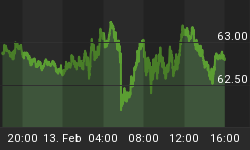Five years ago, I wrote about threats made by the Internal Revenue Service against conservative churches for supposedly engaging in politicking. Today, the IRS is again attempting to chill free speech, sending notices to more than 15,000 non-profit organizations -- including churches -- regarding its new crackdown on political activity.
But what exactly constitutes political activity? What if a member of the clergy urges his congregation to work toward creating a pro-life culture, when an upcoming election features a pro-life candidate? What if a minister admonishes churchgoers that homosexuality is sinful, when an initiative banning gay marriage is on an upcoming ballot? Where exactly do we draw the line, and when does the IRS begin to violate the First amendment's guarantee of free exercise of religion?
I agree with my colleague Walter Jones of North Carolina that the political views of any particular church or its members are none of the government's business. Congressman Jones introduced legislation that addresses this very serious issue of IRS harassment of churches engaging in conservative political activity. This bill is badly needed to end the IRS practice of threatening certain politically disfavored faiths with loss of their tax-exempt status, while ignoring the very open and public political activities of other churches. While some well-known leftist preachers routinely advocate socialism from the pulpit, many conservative Christian and Jewish congregations cannot present their political beliefs without risking scrutiny from the tax collector.
The supposed motivation behind the ban on political participation by churches is the need to maintain a rigid separation between church and state. However, the First amendment simply prohibits the federal government from passing laws that establish religion or prohibit the free exercise of religion. There certainly is no mention of any "separation of church and state," yet lawmakers and judges continually assert this mythical doctrine.
The result is court rulings and laws that separate citizens from their religious beliefs in all public settings, in clear violation of the free exercise clause. Our Founders never envisioned a rigidly secular public society, where people must nonsensically disregard their deeply held beliefs in all matters of government and politics. They certainly never imagined that the federal government would actively work to chill the political activities of some churches.
Speech is speech, regardless of the setting. There is no legal distinction between religious expression and political expression; both are equally protected by the First amendment. Religious believers do not drop their political opinions at the door of their place of worship, nor do they disregard their faith at the ballot box. Religious morality will always inform the voting choices of Americans of all faiths.
The political left, however, seeks to impose the viewpoint that public life must be secular, and that government cannot reflect morality derived from faith. Many Democrats, not all, are threatened by strong religious institutions because they want an ever-growing federal government to serve as the unchallenged authority in our society. So the real motivation behind the insistence on a separation of church and state is not based on respect for the First amendment, but rather on a desire to diminish the influence of religious conservatives at the ballot box.
The Constitution's guarantee of religious freedom must not depend on the whims of IRS bureaucrats. Religious institutions cannot freely preach their beliefs if they must fear that the government will accuse them of "politics." We cannot allow churches to be silenced any more than we can allow political dissent in general to be silenced. Free societies always have strong, independent institutions that are not afraid to challenge and criticize the government.
















